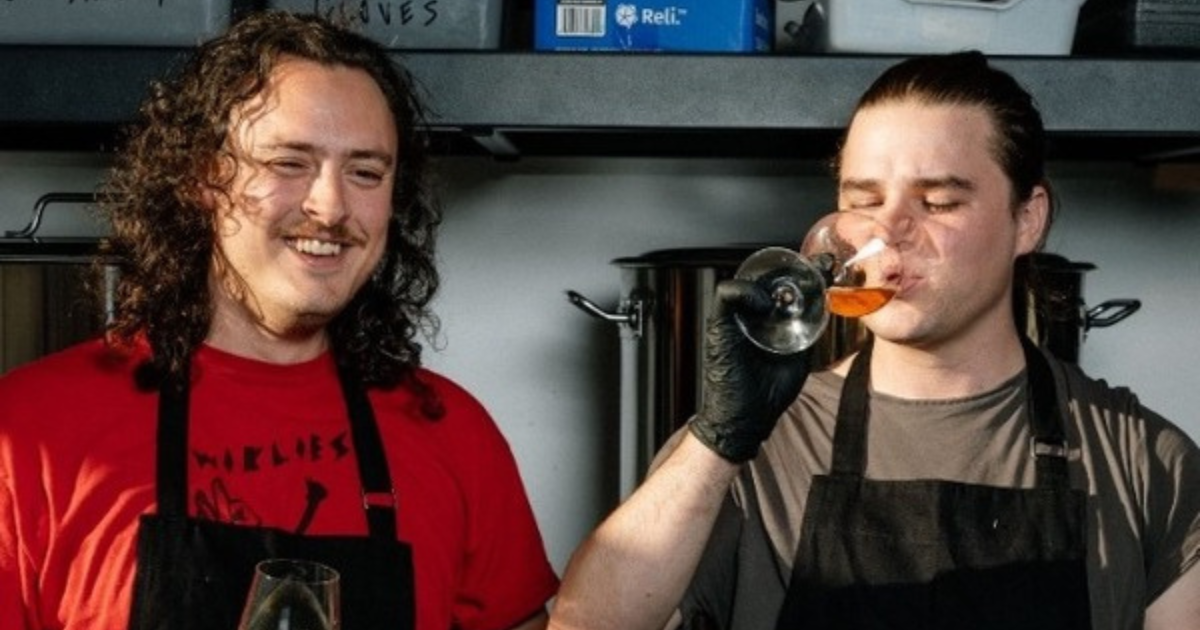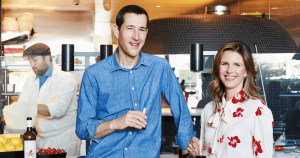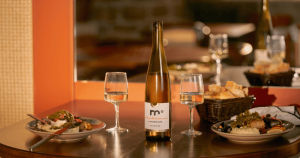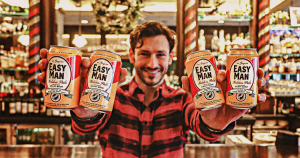In this insightful Q&A, Young Stowe, Co-Founder and CEO of Unified Ferments, delves into the unique journey of creating a fermented tea brand that stands out in the non-alc industry. From a wine bar concept to a focus on complex, single-origin tea fermentations, Young and his co-founder Graham Pirtle have crafted a brand that marries tradition with modern innovation. Young shares the importance of sourcing quality ingredients, the balance of honoring tea traditions while employing modern fermentation techniques, and the philosophy of brewing by their own rules. He also touches on the challenges faced in the industry and the future aspirations of Unified Ferments.
Could you share the origin story of Unified Ferments? What inspired you to start a fermented tea brand?
UF was founded by myself and my high school buddy, Graham Pirtle, in late 2019. We were plotting a LES wine bar, and started thinking about an in-house fermentation program. Graham had extensive tea experience and knowledge, and I’d been working in the beer and wine world.
We started playing around with kombucha-type ferments of complex, single-origin teas and found the process extracted flavors more akin to the natural wines we were drinking at the time. We ditched the bar concept and focused on the fermentation. We had no clue what we were getting ourselves into, lol.
How do you source the ingredients for your teas, and why is the choice of ingredients so crucial for your brand?
We source our teas from historic producers with a proven history of doing things the right way.
Given that our products have four ingredients (tea leaves, water, sweetener, and inoculant/starter) and that our fermentation process amplifies and develops the initial flavors of the brewed tea, our selection and the quality of that selection primarily determines our products’ impact. Finding the right teas is a matter of rigor, relationships, and a big dose of intuition—especially when beginning R&D on a new product. At that point, we’re just looking into what is most exciting or mind-altering in terms of flavor.
Fermentation is an ancient process, yet you’ve brought a modern twist to it. Can you discuss how you balance tradition with innovation?
The tea helps keep us inside of a tradition in a sense—so much sophistication and effort has gone into creating the bases of our products that we feel a real obligation to honor that effort.
In terms of modern twists, I think we simply have more tools at our disposal to monitor and inflect the fermentation. But, really, the fermentation is where the magic happens. So we use modern technologies basically to intermediate as subtly and with as much nuance as possible—not to speed things along or bend the process to our will significantly.
Unified Ferments is known for brewing by its own rules. How does this philosophy influence your production process?
You may be giving us a bit too much credit. If we can be said to brew by our own rules, it’s probably because we arrived at the craft non-alcoholic scene almost by accident. At best, you might say we were innocent to what the norms were, at worst you could call that ignorance haha.
Since there was no playbook for what we were trying to do at the time, we ended up being very iterative and always wanting to achieve a kind of approachable complexity within our products that kept us as entertained as any customer might be. We wear most labels lightly and always try to find enjoyment in the process and product.
Can you walk us through the flavor development process for a new tea? What inspires your flavor profiles?
We walk around the teas a bit and think about certain sense memories and regional characteristics. From the lineup side, it’s kind of like putting a menu together. You want to have lots of different textures, aromatics, and flavor structures so that if you’re tasting through our offerings, there’s very little redundancy.
I say a lot that we don’t have a house style, we just have an agenda to yield really interesting things that can grow on you. We’ve definitely developed a sixth sense for how certain flavors will develop in fermentation, but by definition it’s kind of always a surprise.
What is your personal favorite product from Unified Ferments, and how do you prefer to enjoy it?
I think Qi Dan continues to educate me about what we’re doing. It’s one of our oldest continual fermentations, and whenever I come back to it, I remember that the process is a dialogue between these living products and our ability to shepherd them the right way.
The Nilgiri Green is probably neck and neck, however. The tannic structure and beautiful equatorial fruit notes really stunned me when we first pulled it out of the vat—and the tea producer is one of the only female tea masters around and operates on a really masterful level.
What sets your teas apart from others on the market?
I think there’s never been a better time to be looking for offerings than in the current market. One of the silver linings of the pandemic seems to have been a rising interest in drinking things that aren’t beholden to ABV for flavor.
That said, I think we offer beverages that tell a specific story of a particular place in a way that feels more like the wine world than most of the NA world. I think there’s a lot of wizardry in taking a handful of ingredients and making something functional and astonishing. But, personally, what I find most charming or interesting about what we do is taking a single, deep ingredient and restricting ourselves to the task of making that one thing sing.
What are some of the unexpected challenges you’ve faced in the industry, and how have you tackled them?
Where to even start, haha!
We were pitching uphill so often at many of the restaurants and buyers we initially had meetings with. It was always something like “so what is this?” or “so who wants this?” The market really changed on us mid-stream, and since the NA category came into its own, our sales are all inbound these days. Everything else, including doing our own production, sales, etc. basically boils down to “just keep going.”
You have a unique approach to the “slow beverage movement.” Can you elaborate on this concept?
Again, this may be giving us too much credit, haha! I’m not sure our approach was very informed by a movement as much as it really dove-tailed into what people found themselves wanting to experience.
I love the idea of our products finding a niche in people’s lives (or providing one) that might be moving fast or slow. Personally, I’d love to see the Wall Street exec pounding a bottle or two on conference calls!
Looking to the future, are there any exciting developments or expansions in the works for Unified Ferments that you can share with us?
I think we’re excited to find new expressions of what feels like our core mission: leveraging fermentation to give people something special in their day. You know, we’re not Unified Kombucha—the art of fermentation and all its possibilities are things we’re interested in. That being said, we really want to get a lot of new flavors cooking and on your shelves ASAP!






